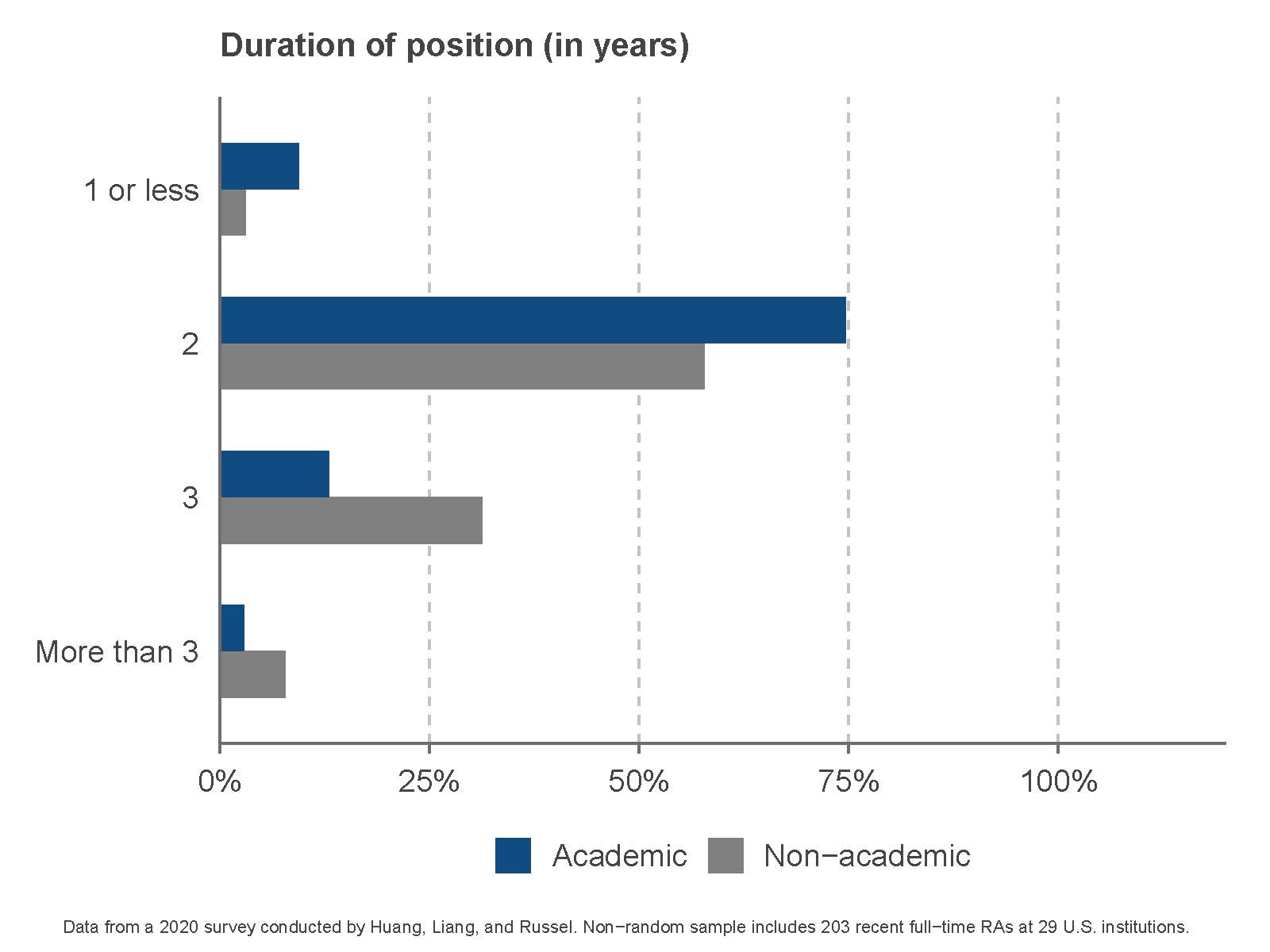What is the work experience like?
Work experiences vary a ton across RA experiences. Here, we point out a few ways in which they may vary:
1. Who you work for
In some research groups (e.g. Opportunity Insights, the Princeton Industrial Relations section, the Federal Reserve), RAs are supervised by a group of PIs rather than for just one. In other situations, RAs are supervised by just one PI for the entire duration of the position. Still other opportunities are somewhere between the two, with RAs working for one PI at a time, switching off after some period of time. These setups each have their benefits and drawbacks: getting to work with one PI for longer could mean being able to get to know your PI better and work more closely together, while working for several could help expose you to a broader range of projects and working styles.
2. Who you work with
RA positions differ in the peer groups they allow you to cultivate. On the lonelier end of the spectrum, there might not be any other RAs for you to interact with on a daily basis. On the other hand, you might be one of a cohort of RAs working under PIs in the same department (these environments are sometimes referred to as “labs”) or institution (e.g. the Federal Reserve often has many RAs). In academic departments, you might have daily interactions with other RAs or possibly students.
3. How long you stay
Initial RA contracts tend to be for 1-2 years, but norms can vary by opportunity. In some places, it’s rare for RAs to leave after just one year, while at others, it’s more common. Some RAs may choose to stay longer to develop more skills or just because they enjoy the work. In some places, you can even transition straight into being hired more permanently as a technician for your PI or for the institution.

4. Where you work
RAs generally work in either academia, government, or at NGOs/think tanks (see section on where RAs work). Within each category, RAs might work from home, in a standard office, or in a secure data access facility (e.g. an IRS office, or a Census access facility).
5. How independently you work
This can vary substantially with your PIs’ style and the nature of your project. Some RAs check in frequently with their PIs about tasks, while other RAs are expected to function more independently, checking in only when issues come up or in scheduled meetings (weekly, biweekly, etc.). On average, RA work is quite self-directed. According to the RA survey, around 44% of academic RAs exchange emails or messages with their PIs daily, 41% every 2—3 days, and 12% once a week. In terms of in-person conversations or phone calls, most respondents report a frequency of every 2—3 days (around 30%) or weekly (around 40%).
6. How much you work
From having a 40-hour workweek to being on call in the evenings and on weekends, work hours can vary tremendously across RA positions. In some RAships, hours may be highly variable from week to week, depending on the deadlines the PI is facing, the stage of the work you’re involved in, or the culture of the workplace. In general, RAs may be expected to be flexible about when they work, especially when working across time zones.
7. Workplace culture
The people you work with (PIs, other RAs, grad students, undergrad researchers, managers, etc.) can influence your experience and happiness at work, so it’s important to think about who you’ll be working with, their working styles, and the workplace culture as a whole before accepting any position. Some workplaces have a culture of making less time for life outside of work, and this aspect of the workplace culture may be intensified by your colleagues. See here for important questions to ask yourself with regards to workplace culture and more.